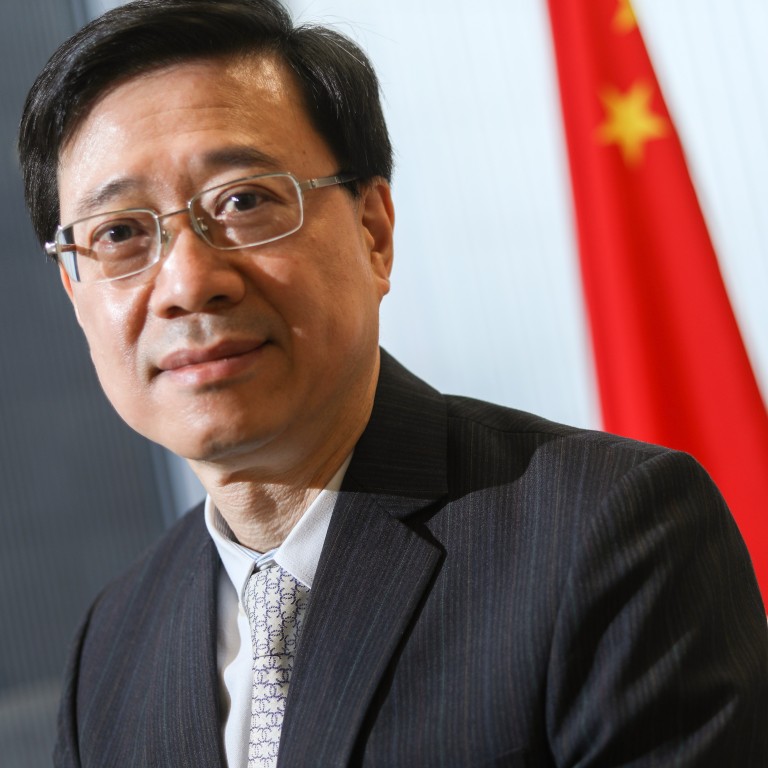
Hong Kong protests: collusion with foreign forces has dropped since national security law adopted, security chief says
- John Lee points to police intelligence showing protesters were highly organised in communication and division of labour
- Beijing will be less likely to take over exceptional cases given work of force’s dedicated unit, he says
Lee said he was confident that given the efforts of the police unit dedicated to handling national security cases, the likelihood of Beijing taking over exceptional ones would decrease.
“We hope violent activities will decrease significantly,” the secretary for security said during a television interview set to air on Friday night. “Of course, we must keep up our vigilance as external forces are still operating in Hong Kong.”
“These were not protests and demonstrations which involved ordinary people,” he said.
The minister said during the television interview the new law had helped safeguard national security.
“Collusion with external forces and foreign interference in the city has been on the wane since the national security law came into force,” he said. “Some people who previously colluded with external force have quit the movement or disbanded their organisations. Some of these people have left Hong Kong.”
National security law: how has Beijing’s sweeping new legislation changed Hong Kong?
But legal scholars and opposition politicians have warned the law, with its vaguely defined offences and broad powers for police and mainland Chinese agents, posed a threat to freedom in the city and undermined the “one country, two systems” principle.
Beijing can exercise jurisdiction over “complicated” cases such as ones relating to foreign interference, or when local authorities cannot enforce the new law effectively or the nation’s security is under major threat. Lee said he was confident that given the efforts of the dedicated police unit, the likelihood of Beijing taking over exceptional cases would decrease.
On July 1, the anniversary of the city’s handover from British to Chinese rule in 1997, only 2,000 to 3,000 people caused “trouble”, compared with more than 10,000 who took to the streets in the past, he said.

